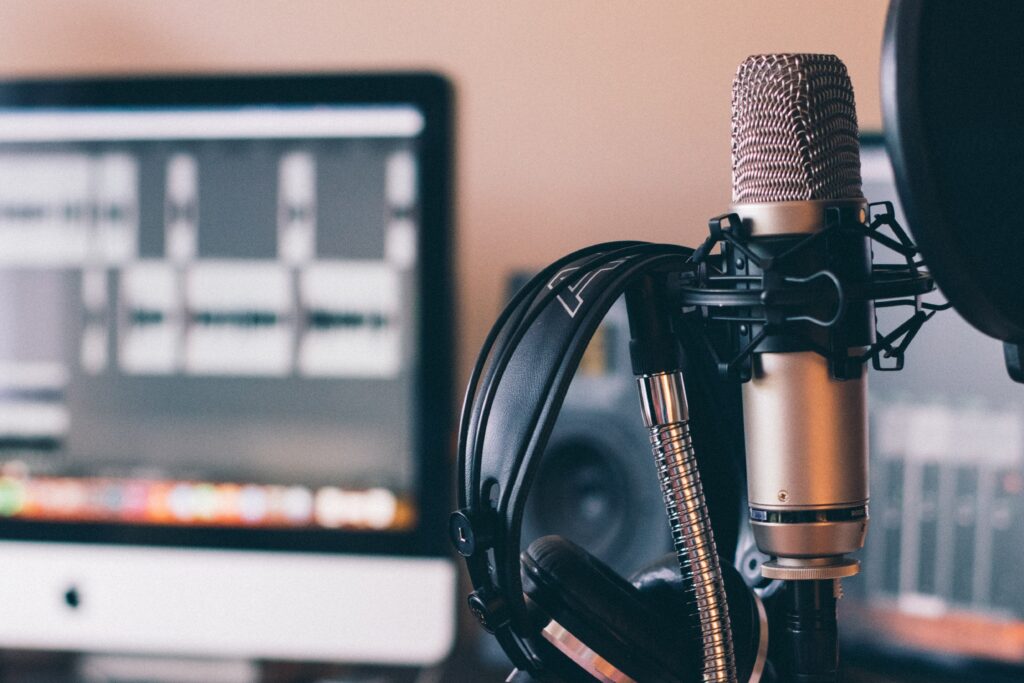New Wave Artists Spotify Podcasts, Spotify Podcasts has blown up from a primarily DIY medium at the bottom of the media food chain, to a corporate-approved cash cow at the top — and major music-streaming services have become among the sector’s most aggressive investors today.
In the summer of 2017, Tidal launched its exclusive “On Air” podcast network with a focus on hip-hop. Pandora then launched its Podcast Genome Project in December 2018, with a goal of improving podcast recommendation and discovery on its platform.
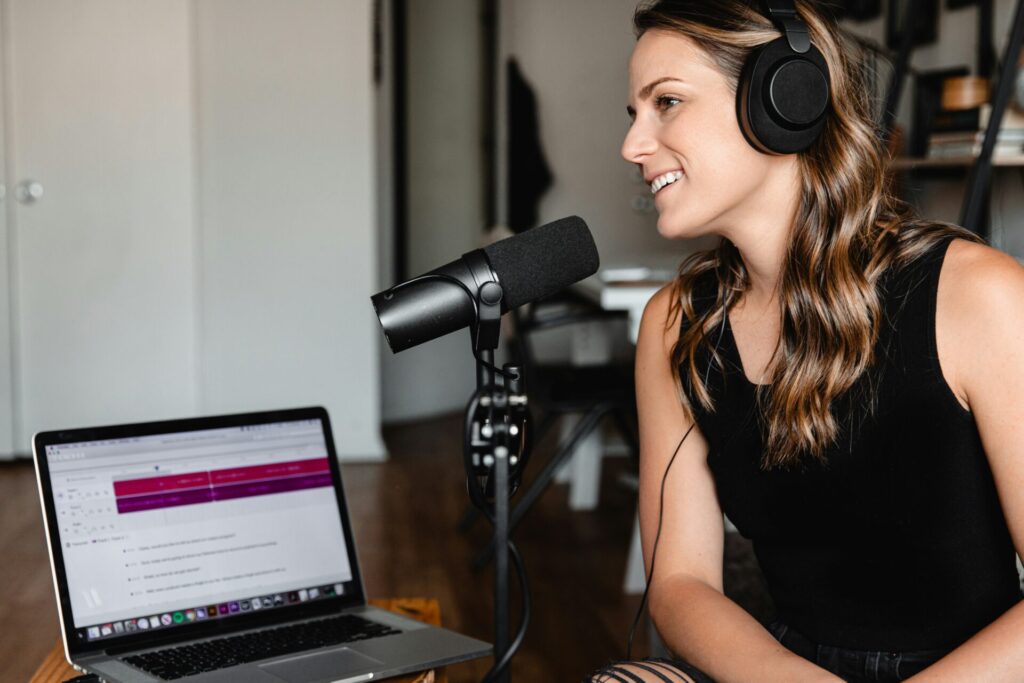
And most recently — with reported nine-figure valuations the podcast industry has never seen before — Spotify announced its acquisitions of Gimlet Media and Anchor, among the world’s biggest podcast production and distribution companies, respectively. The news came hot off the heels of Spotify landing multimillion-dollar, exclusive podcast deals with personalities including Joe Budden, Jemele Hill and Amy Schumer, as well as experimenting with hybrid podcast/music playlist formats such as the Daily Car Mix.
So why are Spotify and its competitors investing more in podcasts? In part because their bottom lines demand it. Historically, Spotify has had to pay out as much as 80 percent of its revenue to music rights holders. In contrast, the company doesn’t have to siphon away revenue for royalty payments whenever someone presses “play” on a podcast episode — in part because the licensing landscape for podcasts is still too distributed to operationalize on a platform of such large scale. (With respect to podcasters’ rights, this also means the costs and paperwork for music and content licensing fall on individual hosts, not on Spotify.)
But the impact of this investment is not just about Spotify’s bottom line: it’s also about the podcast business potentially upending the entire music-industry ecosystem at large, to the benefit of artists.
Spotify and similar services have facilitated recorded music’s disintermediation, enabling artists to release their music independently and direct-to-platform. In the hands of artists, podcasts can continue this tradition by allowing them to sidestep media gatekeepers and share their own narratives directly with fans — a capability that dates all the way back to the iPod (but is more relevant now than ever in the largely unpredictable world of streaming).
Direct-to-fan storytelling: “The artists are becoming the media” Spotify Podcasts
While recently framed as a cutting-edge innovator, Spotify is actually a relatively late mover in a deep, decades-old history of podcasts’ alignment with music.
“Podcast” was the New Oxford American Dictionary’s word of the year not in 2018, not in 2017, not in 2010, but in 2005 — just four years after Apple launched the inaugural version of its iconic iPod. While the term “podcast” was coined far before the iPod was released, the two have often been paired together as emblematic of technology’s transformative impact on the music and media industries at the turn of the 21st century.
“Think of the disruption that comes when the established giants of broadcast no longer have the artifices of broadcast licenses and cable distribution fees to fend off competitors,” journalist Steven Levy writes in his 2006 book The Perfect Thing: How the iPod Shuffles Commerce, Culture, and Coolness. “Think of the empowerment that comes when a copy of GarageBand — Apple’s music-making program, revamped to make people podcasters — an internal mike, and a mouse click make you a radio station.”
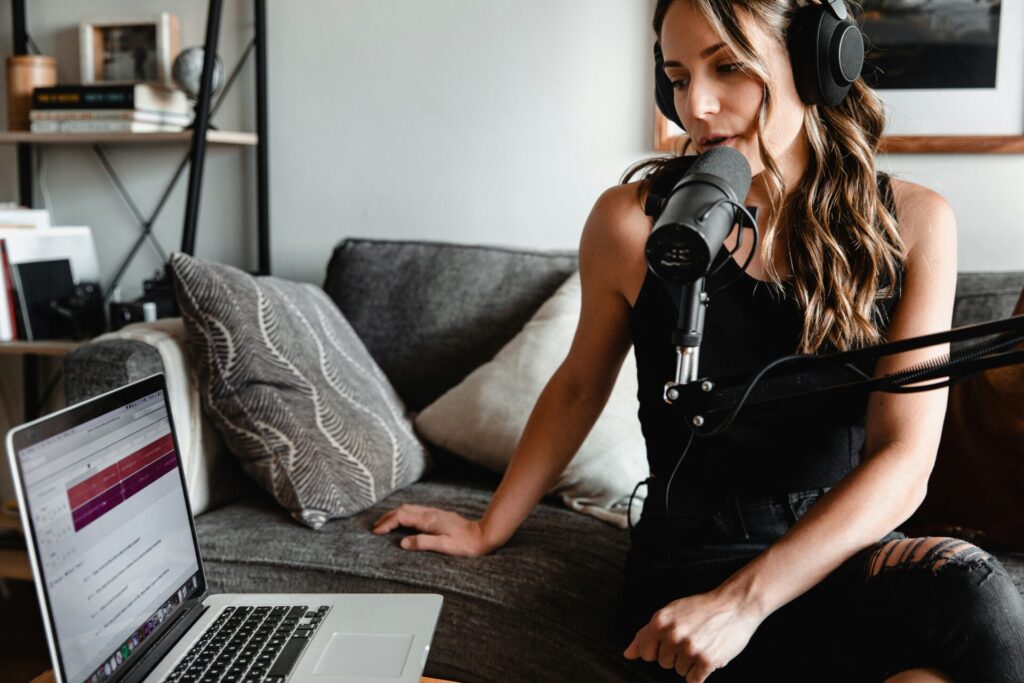
This rhetoric of disintermediation and empowerment continues to permeate the recorded-music industry today. A growing number of artists are treating record-label contracts not as a surefire path to a sustainable career, but rather as a restrictive last resort, relying instead on self-serve tools like CD Baby and TuneCore for distribution. DIY stars like Chance the Rapper have set an example for artists looking to maintain control over their rights while remaining financially sustainable.
How do podcasts help serve this mission of ownership and control for artists — and why now, if the “disruption” of which Levy speaks has been already decades in the making?
The answer can be summed up in two sentences that indie artist Peter Hollens once told The Verge: “Musicians are a product. We have a difficult time conveying to the audience that we’re people.”
More than any other music company, streaming services like Spotify productize artists to optimize the experience for the end user. In the process of democratizing distribution on a global scale, said services also flatten the experience of music consumption, severely limiting communication and branding capabilities for artists.
Not only is there a surprising amount of friction to finding out basic contextual information about an artist or song — where and how was this song recorded? where did the artist grow up? what is this song even about? — but these services’ increasingly mood-driven, utilitarian user interfaces also leave artists and labels feeling like they no longer have control over their own narratives.
Early on, a handful of companies stepped up to offer artists their own radio shows. It was an attempt not just to give said companies more personality, but also to give artists the steering wheel in curating and telling their own stories, instead of relinquishing power to streaming algorithms. Apple’s Beats 1 has brought on star hosts like Nicki Minaj, Drake and Frank Ocean, while SiriusXM is home to many artist-fronted stations like Eminem’s Shade 45. But such opportunities are usually offered only to the top of the 1% of celebrities, and are far from democratized.
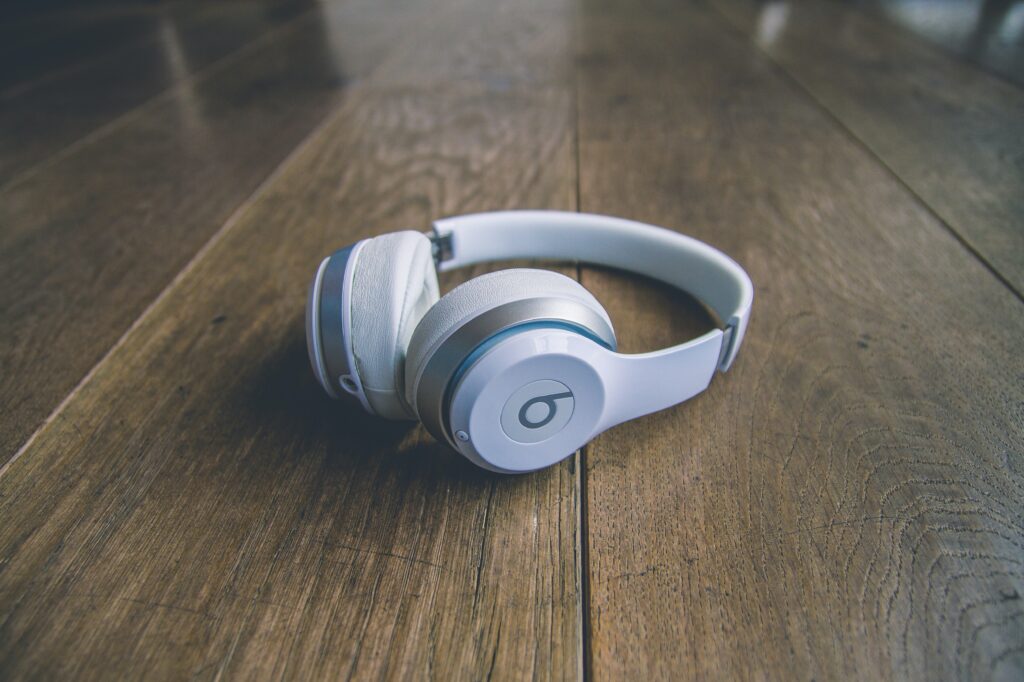
The other primary media alternative for independent artists — namely, placements in traditional music press outlets like Pitchfork, Rolling Stone, Billboard and Complex — is not only financially precarious in itself, but also ridden with the very bureaucracy that artists sought to escape in the first place.
“Music media currently has just as many middlemen as the recorded-music industry shed post-Napster,” says Kevin Wortis, founder of podcast label Signal Co. Nº1, which is working on an original podcast docuseries with American rock band The Pixies. “A label hires a publicist, the publicist calls the media destination for a premiere of a music video, the label issues a press release and the artist spends money to reach their own fanbase on Facebook through advertising. Said media outlet ends up making the most money from ads against all that traffic, with no direct upside for the artist or label. What we’re seeing now with podcasting is that artists can go directly to fans without these middlemen. The artists are becoming the media.”
Indeed, rather than wait for third-party press placements, a growing number of independent musicians are now becoming podcasters themselves, creating their own de facto media outlets.
Ten days before Spotify revealed its acquisitions of Gimlet and Anchor, I posted a callout on Twitter asking for a handful of recommendations for artists who hosted their own podcasts. To my surprise, I received over 170 responses — unveiling a DIY music-media economy that has been active for over a decade, relatively untouched by corporate interests.
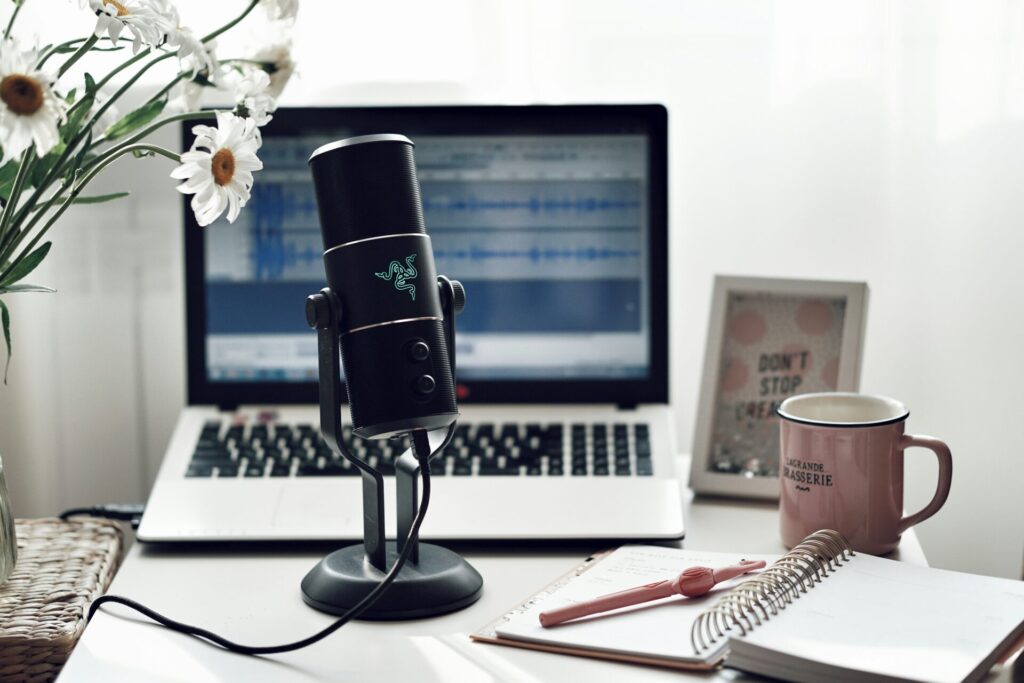
The topics vary widely, but common themes among the podcasts include deep-dives into the songwriting and production process (Song Exploder, The Art of Process, Sodajerker On Songwriting), tactical advice about the music business (Middle Class Musician, The Savvy Musician Show), highlights of a specific community (I’m In The Band for women in punk and indie rock, Lead Singer Syndrome for lead singers, Back to Back for EDM) and even riffs on adjacent interests like politics and social issues (Felipe’s Garage, The Solecast).
Because the UX on streaming services like Spotify has become both more algorithmic and less social over time, artists have historically been forced to look elsewhere to develop a context around their music and interact with fans on their own terms, primarily on apps like Instagram, Snapchat, TikTok and Twitter that prize short-form over long-form discourse.
“Spotify has this really dynamic, exciting consumer-facing service, but hasn’t managed to translate that into an actual fan ecosystem on the app,” says London-based musician Lex Low, who hosts the podcast Songmakers. “Running an artist-based podcast seemed like a good way to jumpstart that.”
In this vein, perhaps the most fascinating, if technically challenging, benefit of podcasts is the possibility of humanizing recommendation algorithms. Otherwise faceless playlists like Spotify’s Discover Weekly or Release Radar could be enhanced with human-mediated context about particular artists and songs, as recorded in podcast episodes by both major and emerging critical voices. Such a feat will also be increasingly important with the ongoing rise of smart speakers — which already count music as their top use case, and inherently incorporate more conversational user behavior into the experience of discovering and consuming media.
In helping artists maximize their narrative freedom, the podcast format also provides an invaluable platform for highlighting voices that have historically been marginalized in the public eye, particularly those of women, people of color and LGBTQ+ communities (who are often left out even in the supposedly egalitarian world of streaming).
“We have to be telling our own stories and creating our own canon,” says Allison Wolfe, founding member of riot grrrl band Bratmobile and host of the podcast I’m In The Band, which was released exclusively on Tidal until September 2018. “Otherwise, we’ll get erased from history.”
What podcasters can learn from musicians
New Wave Artists Spotify Podcasts, As Spotify continues to warm up to podcasts (and vice versa), musician-podcasters could also serve as meaningful advocates and role models for the wider audio industry when it comes to building effective systems for discovery, recommendation and fan engagement — all areas where podcasting currently falls behind.
New Wave Artists Spotify Podcasts, “Not all artists know how to communicate with Spotify’s team, but at least there’s clear communication about the function of the system and how artists can achieve their goals: building up monthly listeners, getting onto Release Radar and Discover Weekly, and so on,” says Low. “As far as podcasts go, there’s no communication between Spotify and podcast makers. I don’t know what promotional functions there are for podcasts within Spotify, or even how podcast recommendations work on the platform. If there’s no way for me as an artist to alert people within Spotify that there’s a new podcast episode out, how do you get them to find out about it in the first place?”
There are many use cases for podcasts that would be helpful for musicians but do not yet exist, in part because of the historical infrastructural disconnect between a hosting site like Anchor and an end-user aggregator and platform like Spotify. For instance, if you upload an artist interview to Spotify through Anchor today, there’s no way to tag the episode with the artist’s Spotify profile, which would facilitate podcast listeners’ discovery and exploration of that artist’s musical catalog (similar to listing multiple “featured artists” on a given song).
In addition, each streaming service has its own inherent genre and demographic bias, which will be reflected in the types of podcasts they are incentivized, or not, to support. For instance, Wolfe’s I’m In The Band lasted for two six-month exclusive contracts with Tidal before being dropped, along with several other indie-rock podcasts — likely because the Jay Z-owned streaming service’s content strategy has centered on hip-hop from the very beginning.
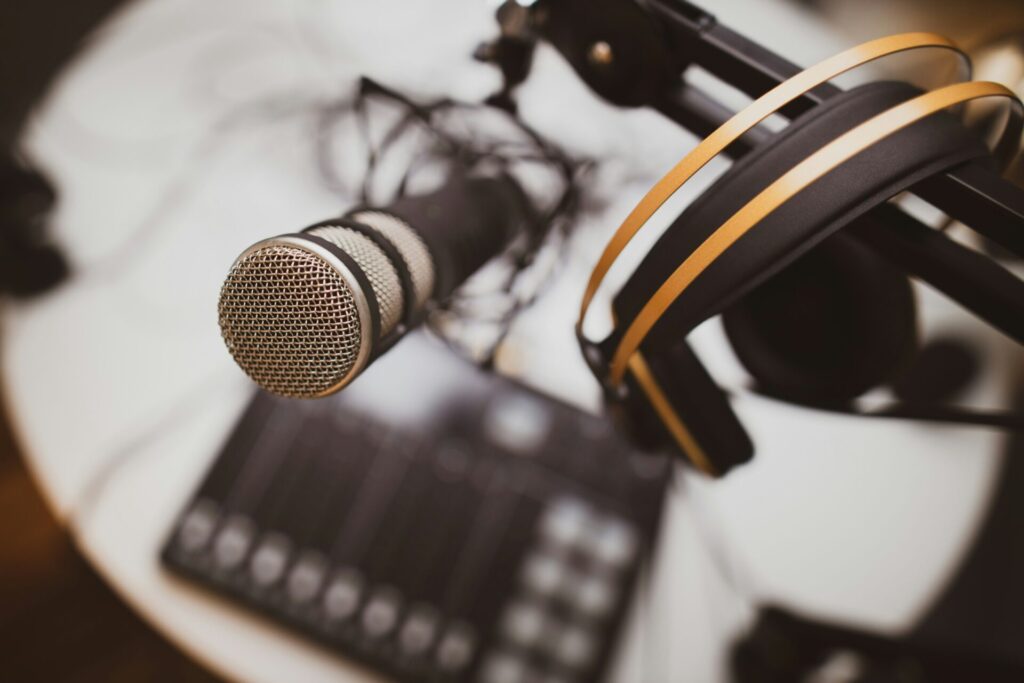
“Working with Tidal was great because they gave us complete creative freedom, but the problem is that most punk fans don’t want to pay for anything, especially not for streaming,” says Wolfe. “It’s really hard to convince them to subscribe to Tidal if there’s no free version.”
Many independent artists and record labels deal with these biases and challenges on a daily basis, and have built up years’ worth of best practices on how to thrive in such a cutthroat, context-free environment. As podcast hosts and brands navigate their newfound streaming future, they could benefit from the music industry’s expertise.
“The podcast universe has historically been more of a closed environment, in that podcasts primarily promote themselves through other podcasts,” says Lars Murray, Partner at voice and audio agency PopCult Worldwide and former SVP of Strategic Partnerships at Pandora. “This was in part by necessity; monetization wasn’t great, therefore marketing budgets weren’t great. But record labels excel at marketing their artists and their catalog, and are particularly good at marketing to wider streaming audiences. The convergence of those two worlds is full of promise.”
New Wave Artists Spotify Podcasts, It’s important to note that these parallel trajectories may not be completely rosy: the fact that the streaming services willing to pay the most for podcasts are already working with baked-in platform biases also underscores potential future inequities in access to resources for emerging podcasters — a debate eerily similar to that of whether Spotify is wiping out music’s middle class.
In the words of Eric Silver, Spotify buying Gimlet is “like when your favorite indie band gets signed by a major label” — except in this case, the major label that is Spotify also now owns the company responsible for over 40% of all new podcasts entering the market. As music advocates have previously argued, this level of consolidation and vertical integration is rarely positive for independent artists because it encourages a one-size-fits-all approach to business, rather than encouraging a wider diversity of models — to the point where Spotify becomes just another gatekeeper to worry about.
New Wave Artists Spotify Podcasts, Musicians and podcasters present valuable parallel case studies. On one hand, the disintermediating, humanizing power of podcasts has served as inspiration to artists looking to maintain narrative control in an increasingly flat, automated digital-music landscape. On the other hand, the means by which artists navigate sprawling playlist ecosystems that shift beyond their control could serve as templates for the upcoming challenges that budding podcasters will face, with respect to discovery and audience development. Platforms like Spotify, Pandora and Tidal will serve as crucial convergence points between both sides — and will give musician-podcasters yet another opportunity to rewrite the rules of their own careers.
Also read up on>>> Maximizing Podcast Revenue: Proven Monetization Strategies
